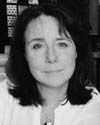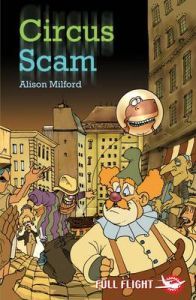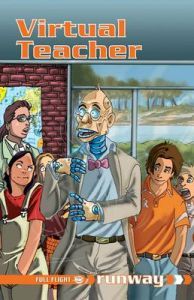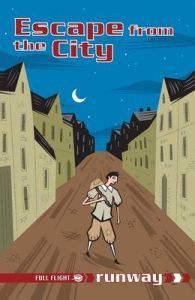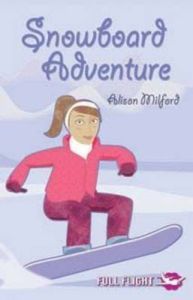Alison Milford
Alison also performs as a storyteller mainly to young children and students with medium to severe learning disabilities. She regularly performs in schools, festivals and in community groups. Before being was a writer, Alison had been a museum display designer, an events manager, an international trade exhibition organiser, a marketing manager for an events lorry firm, a primary school teacher and a KS3 1:1 tutor.
Alison was lucky enough to grow up in the beautiful arts and crafts village of Ditchling, which nestles under the Sussex South Downs. After over 20 years of living in cities, she returned to Sussex where she lives with her husband, two teenage daughters and a very clingy cat called Charlie.
Q&A with Alison Milford
What inspired you to write for reluctant readers?
When I was a primary school teacher, I noticed that the children who were reluctant to read often preferred to choose stories or non-fiction texts that included a lot of visual images or eye-catching layouts. However, many of these texts were for younger children and not really set at the right interest level. As a writer, I am thrilled to have the opportunity to create books that reluctant readers would love to read.
What challenges do struggling readers face when they open a book?
I think one of the main challenges faced by struggling readers is to deal with pages and pages of tightly packed words. It can be very overwhelming and immediately put the reader off from reading or carrying on with the book.
What is your favourite type of character to create?
My favourite characters tend to use their own initiative or find a hidden courage to solve a problem or mystery when faced with a dilemma. I also like to give my characters a skill so that I can research and find out more about it. In some of my non-fiction books, I like to write about interesting, tragic, fun or eccentric people from the past who have been forgotten over time.
What features and methods do you use to ensure that your books have that high-interest appeal that really engages young readers?
I believe an engaging and eye-catching front cover, title and back cover blurb is very important as it entices the reader to want to find out more. Once the cover is open, I think layout is all important from the use of the font and text sizes, wide spaces between sentences and paragraphs, different text types and designs as well as attractive pictures and photographs.
What difference do books like these make to children who are in need of literacy support?
Very important. The children's self-esteem improves as they join their peers in reading books that are fun and informative as well as gaining a real sense of achievement of being able to read a book from cover to cover.
Can you give us any teasers of what to expect in your upcoming WOW! Facts title?
Let's just say, it has a pretty cold title packed with chilly facts and information that includes a ship sinking iceberg, icy sculptures, a forgotten ice king, stunning icy buildings and slippery winter sports. Brrr!
What controls do you place on the vocabulary you use and how important is this?
Making sure the vocabulary is at the right reading level is obviously very important but equally, I also think that it is important that the readers are aware of how words can be used for effect and be varied. During the editing process of a reluctant reader title, I read the text out loud to check that it scans and then use my much thumbed thesaurus, to either simplify words or choose a suitable alternative to a commonly used word.
What is your favourite children's book?
I have a great passion for history so most of my favourite children's fictional books tend to be set in the past such as Philip Pullman's Sally Lockhart books e.g. The Ruby in the Smoke. For non-fiction, I love exploring fun fact books such as the 'Guinness Book of Records' or the Horrible Histories by Terry Deary.
Do you have any advice for aspiring writers/authors?
Keep a small notebook with you, so that you can jot down anything that may suddenly pop into your mind or that you see or hear around you e.g. a story or non-fiction idea, a character description, an interesting or amazing fact, a funny sign, a great word or phrase. Add doodles or sketches too.
Speak to our team today on 01553 816082 or if you would prefer us to call you back then please enter your details in the form below and a member of our team will call you back.

